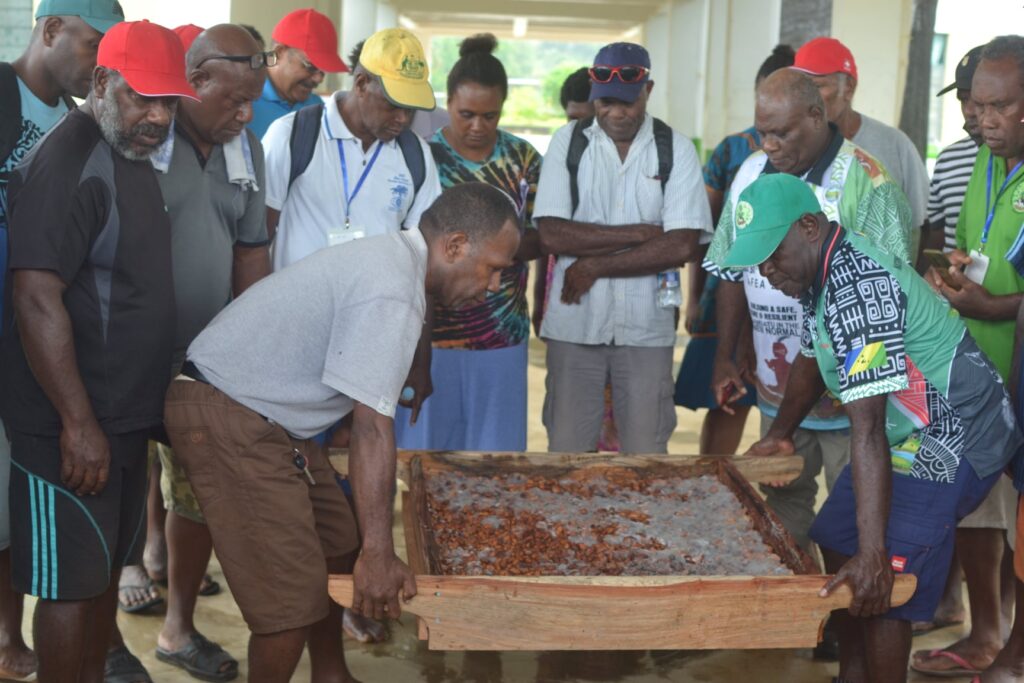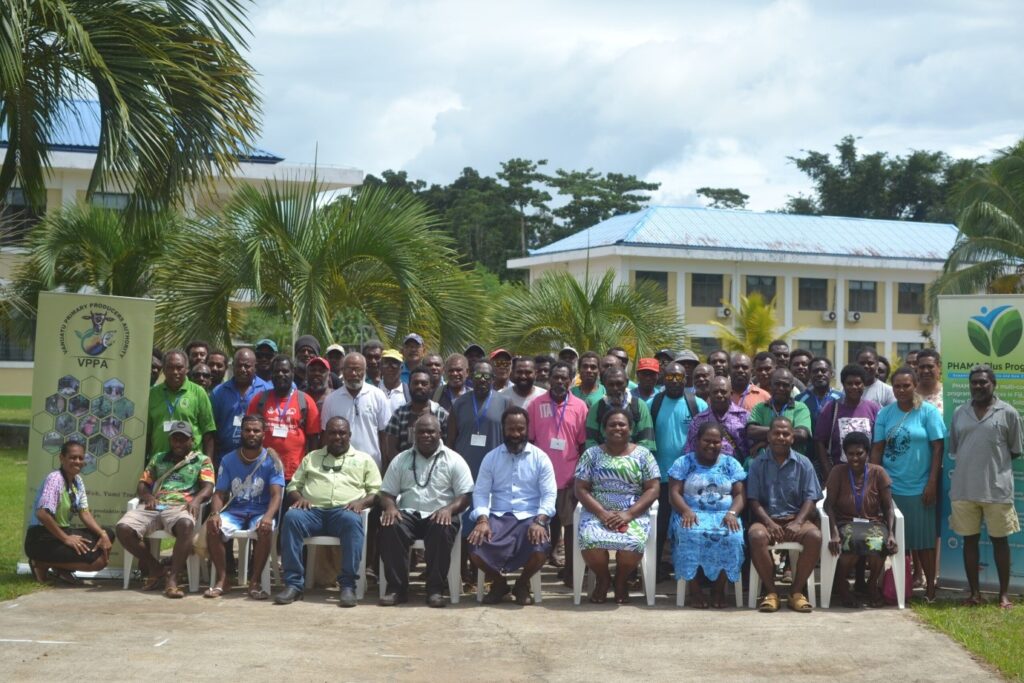Solar drying revolution: Vanuatu cacao, kava farmers explore solar drying technology
Solar drying is becoming a popular method for agricultural producers globally to improve efficiency and product quality. For farmers and exporters in Vanuatu, adopting this innovative technology can ensure consistent supply of high-quality produce that meets export market requirements.
The Pacific Agricultural Market Access Plus (PHAMA Plus) Program is supporting the Vanuatu Primary Producers Authority (VPPA) and its members to adopt innovative technologies and techniques like solar drying to develop Vanuatu primary industries and benefit rural households.
“International markets are showing strong demand for Vanuatu cacao and kava products, with consumers willing to pay a premium price for high quality,” VPPA Chief Executive Officer Timothy Tumukon said.
“A key constraint to cacao and kava quality is the impact of smoke taint during drying and one method to overcome this is through the use of solar drying technologies. Under our partnership with PHAMA Plus, we’ll be able to design solar driers using locally available materials that are simple to construct and facilitate their adoption on a larger scale through our member networks.”
PHAMA Plus and VPPA recently organized a week-long practical training for over 60 cacao and kava farmers at the Vanuatu Agriculture College in Santo. The training involved the farmers constructing a complete solar drying facility; testing the revised method of fermenting cacao beans; and cleaning and preparing kava prior to drying. The participating farmers from Torba, Sanma, Penama, Malampa and Shefa provinces were supported with solar drying materials to establish their own using commercially viable driers.

“Solar driers allow farmers to process and dry product all year round. At present there are a limited number of farmers using this technology due to a lack of finance. Some are not aware of the potential benefits of solar driers and how to use them. Community-owned driers have been used in the past; however, they have failed due to land disputes and ownership rights,” PHAMA Plus National Facilitator Vanuatu Touasi Tiwok said.
“PHAMA Plus is supporting VPPA’s efforts to train and equip its members with solar drying technology and have a workable model that will potentially benefit over 1200 cacao and kava farming households in Vanuatu.”
The driers will be installed on selected farmers’ land who will manage and maintain them with central access to other farmers in the same community. The levies charged will be uplifted from farmers annual membership fees to the VPPA. In addition, VPPA will also collect levies from exporters that market the product. The selected farmers have signed an agreement with VPPA to purchase raw produce from other farmers to ensure quality is maintained. The monies they make from sales can then be used to maintain them and be reinvested to purchase new driers.
“Throughout the week-long training, we have been taught how to produce quality kava and cacao through solar driers. We’ve also been equipped with materials to take back and set up our driers in our own communities and help improve the quality of our produce and access good markets. We hope more farmers can benefit from this as well,” said Harold Stevens, a cacao farmer from Malo Island in Sanma Province.
“I was very interested in the training by VPPA and PHAMA Plus in how to construct a solar drier and how to produce good quality kava. I also learnt to respect kava in treating it as a food in how we handle it”, said Janneth Omawa, a kava farmer from Epi Island in Shefa Province.
PHAMA Plus has been supporting the development of Vanuatu’s cacao and kava export industries since 2011 to improve quality and assist exporters and producers to receive premium prices by tapping into higher end markets.
-ENDs-
For more information, please contact PHAMA Plus National Facilitator Vanuatu Touasi Tiwok on t.tiwok@phamaplus.com.au

